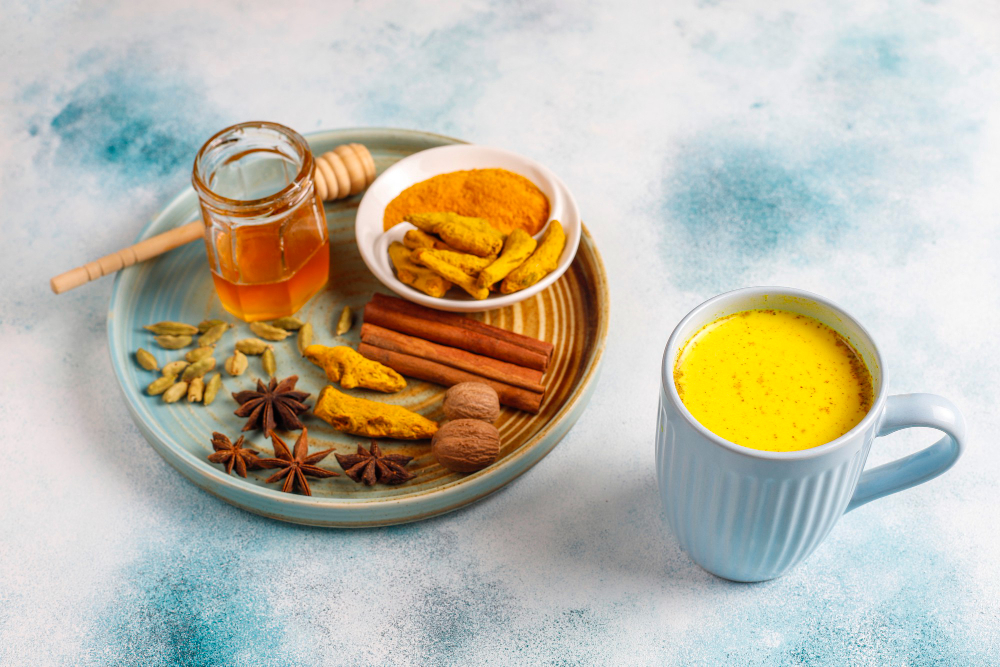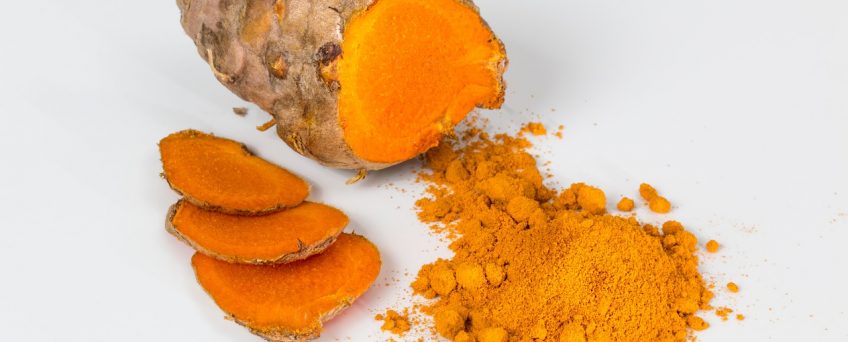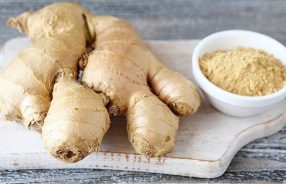Health Benefits of Turmeric, Precautions and Side Effects, How to Use in Daily Life
Discover the health benefits of turmeric and how to use it in your daily life. Learn about the precautions and side effects of this versatile spice.
- Introduction
- Explanation of what turmeric is
- Historical background on the use of turmeric
- Nutritional Information
- Overview of the nutritional content of turmeric
- Explanation of the benefits of consuming turmeric
- Medical Benefits
- Overview of the medical benefits of turmeric
- Explanation of the various ways turmeric can be used for medical purposes
- Discussion of the research supporting these benefits
- Culinary Uses
- Overview of the culinary uses of turmeric
- Explanation of how turmeric is used in different cuisines around the world
- Recipes using turmeric
- Precautions and Side Effects
- Discussion of potential side effects of consuming turmeric
- Explanation of who should avoid turmeric or use it with caution
- Discussion of the interactions turmeric may have with certain medications
- Conclusion
- Summary of the main points covered in the article
- Final thoughts on the benefits and uses of turmeric.
Introduction
Turmeric is a spice that has been used for thousands of years, both as a culinary ingredient and for its medicinal properties. It is commonly used in Indian, Middle Eastern, and Southeast Asian cuisines, where it adds both flavor and color to dishes. But beyond its culinary uses, turmeric has been studied for its potential health benefits and is believed to have anti-inflammatory, antioxidant, and antimicrobial properties.
In this article, we’ll explore the various ways in which turmeric can be used, from its nutritional value to its culinary uses and medicinal benefits. We’ll discuss the research supporting its use in treating various medical conditions, as well as the precautions and side effects associated with consuming turmeric.
But first, let’s take a closer look at what exactly turmeric is. Turmeric is a spice that comes from the root of the Curcuma longa plant, which is native to Southeast Asia. The root is dried and ground into a powder, which is then used as a spice in cooking, as well as in traditional medicine. The bright yellow color of turmeric comes from a compound called curcumin, which is believed to be responsible for many of its health benefits.
In the following sections, we’ll delve deeper into the nutritional value of turmeric, its culinary uses, and its medicinal properties. We’ll also discuss the potential side effects of consuming turmeric, and who should avoid using it. By the end of this article, you’ll have a better understanding of what turmeric is, and why it has become such a popular ingredient in both kitchens and medicine cabinets around the world.
Nutritional Information
Turmeric is a spice that is low in calories but high in nutrients. It is a good source of dietary fiber, iron, potassium, and vitamin C. In addition, turmeric contains a number of compounds that are believed to have antioxidant, anti-inflammatory, and antimicrobial properties.
One of the most important of these compounds is curcumin. Curcumin is a polyphenol that gives turmeric its distinctive yellow color, and is believed to be responsible for many of its health benefits. Studies have shown that curcumin has powerful antioxidant and anti-inflammatory effects, and may help to prevent or treat a variety of chronic diseases.
In addition to curcumin, turmeric contains a number of other active compounds, including turmerones, atlantones, and zingiberene. These compounds are believed to work together to provide turmeric with its many health benefits.
Some of the potential health benefits of consuming turmeric include:
- Reducing inflammation: Turmeric has been shown to have anti-inflammatory properties, which may help to reduce inflammation throughout the body. Chronic inflammation is thought to be a contributing factor in many chronic diseases, including heart disease, cancer, and Alzheimer’s disease.
- Improving brain function: Some studies have suggested that turmeric may help to improve cognitive function, and may even help to prevent or treat Alzheimer’s disease.
- Lowering cholesterol: Some studies have suggested that turmeric may help to lower cholesterol levels, which could help to reduce the risk of heart disease.
- Supporting digestion: Turmeric is believed to have digestive benefits and may help to soothe upset stomachs and improve digestion.
- Boosting immunity: Turmeric is believed to have antimicrobial and immune-boosting properties, which could help to support overall health and well-being.
Overall, turmeric is a nutritious spice that is believed to have many health benefits. Whether you use it in cooking or take it as a supplement, it may help to improve your health and well-being in a variety of ways.
Medical Benefits
Turmeric has been used for centuries in traditional medicine to treat a variety of conditions, and modern research has confirmed many of its potential health benefits. Here are some of the ways that turmeric may be used for medical purposes:
- Reducing inflammation: As mentioned earlier, turmeric is believed to have anti-inflammatory properties, which could make it useful for treating conditions characterized by inflammation. For example, some studies have suggested that turmeric may be helpful for reducing pain and stiffness in people with osteoarthritis.
- Managing depression: Some research has suggested that curcumin, the active compound in turmeric, may help to manage symptoms of depression. In one study, a group of people with major depressive disorder took either curcumin or a placebo for 8 weeks. The curcumin group had significantly greater improvements in mood than the placebo group.
- Improving brain function: Curcumin may also have benefits for cognitive function. Some studies have suggested that it could help to improve memory and attention, and may even help to prevent or treat Alzheimer’s disease.
- Lowering cancer risk: Some preliminary studies have suggested that turmeric may have anti-cancer properties. In particular, curcumin has been shown to inhibit the growth of cancer cells in laboratory studies. However, more research is needed to confirm these findings and determine whether turmeric could be a useful cancer treatment.
- Managing diabetes: Turmeric may have benefits for people with diabetes. Some studies have suggested that it could help to improve insulin sensitivity and lower blood sugar levels.
It’s worth noting that while turmeric shows promise as a natural remedy for various medical conditions, it’s essential to talk to your doctor before using it as a treatment. In some cases, turmeric could interact with medications or have other side effects. However, for many people, incorporating turmeric into their diet or taking a turmeric supplement could be a simple and natural way to support their health.
Culinary Uses
Turmeric is a versatile spice that can be used in various culinary applications. In addition to adding flavor and color to dishes, it also has potential health benefits. Here are some ways to use turmeric in your cooking:
- Curry dishes: Turmeric is a key ingredient in many curry dishes, including Indian and Thai curries. It adds a warm, earthy flavor and a bright yellow color to the dish.
- Rice dishes: You can add turmeric to rice dishes to give them a vibrant yellow color and a subtle flavor. Simply add a pinch of turmeric to the cooking water before adding the rice.
- Smoothies: Adding a small amount of turmeric to a fruit or vegetable smoothie can give it a boost of antioxidants and anti-inflammatory compounds.
- Roasted vegetables: Turmeric can add a delicious flavor to roasted vegetables, such as cauliflower, sweet potatoes, and carrots. Simply toss the vegetables with olive oil, salt, and turmeric before roasting in the oven.
- Golden milk: Golden milk is a popular drink in Ayurvedic medicine, made with turmeric, milk, and spices such as cinnamon and ginger. It’s believed to have anti-inflammatory and immune-boosting properties.
- Salad dressings: You can add turmeric to salad dressings to give them a unique flavor and color. Try mixing turmeric with olive oil, lemon juice, and honey for a simple dressing.

When using turmeric in your cooking, it’s important to note that it can stain clothing and surfaces. Be sure to use it carefully and clean up any spills immediately. Additionally, if you’re using fresh turmeric root, be aware that it can be difficult to find and may require special preparation. However, for most people, using ground turmeric in their cooking is a simple and convenient way to enjoy the flavor and potential health benefits of this versatile spice.
Precautions and Side Effects
While turmeric has many potential health benefits, it’s important to be aware of its potential side effects and to use it safely. Here are some precautions to keep in mind:
- Interactions with medications: Turmeric may interact with certain medications, including blood thinners and drugs used to treat diabetes. If you’re taking any medications, be sure to talk to your doctor before using turmeric as a supplement or in your cooking.
- Digestive issues: Some people may experience digestive issues when consuming turmeric, particularly when taking supplements in high doses. This may include nausea, diarrhea, or an upset stomach. To avoid these side effects, it’s best to start with a small amount of turmeric and gradually increase your intake.
- Allergic reactions: In rare cases, some people may experience an allergic reaction to turmeric. Symptoms may include hives, difficulty breathing, or swelling of the face, tongue, or throat. If you experience any of these symptoms after consuming turmeric, seek medical attention immediately.
- Staining: As mentioned earlier, turmeric can stain clothing and surfaces. Be careful when using it in your cooking and clean up any spills immediately.
- Pregnancy and breast-feeding: There is limited research on the safety of turmeric during pregnancy and breastfeeding. While it’s generally considered safe to consume turmeric in small amounts as a spice in food, it’s best to avoid taking turmeric supplements or using turmeric in medicinal amounts during these times.
Overall, turmeric is considered safe for most people when consumed in moderation as a spice in food. However, if you’re considering using turmeric supplements or using turmeric for medicinal purposes, be sure to talk to your doctor first. They can help you determine the appropriate dosage and advise you on any potential interactions or side effects.
Conclusion
Turmeric is a popular spice that has been used for centuries in traditional medicine and cooking. It contains curcumin, a compound with potential anti-inflammatory, antioxidant, and anticancer properties. As a result, turmeric has become a popular supplement and ingredient in health and wellness products.
In addition to its potential health benefits, turmeric is also a versatile spice that can be used in a variety of culinary applications. From curries and rice dishes to smoothies and salad dressings, turmeric can add flavor and color to a wide range of recipes.
While turmeric is generally considered safe when consumed in moderation as a spice in food, it’s important to be aware of its potential side effects and to use it safely. This includes talking to your doctor before using turmeric as a supplement or in medicinal amounts, being cautious of potential interactions with medications, and avoiding turmeric during pregnancy and breastfeeding.
Overall, turmeric is a valuable addition to any diet, providing both flavor and potential health benefits. Whether you’re using it to spice up your favorite recipes or taking it as a supplement, be sure to use it safely and responsibly.





